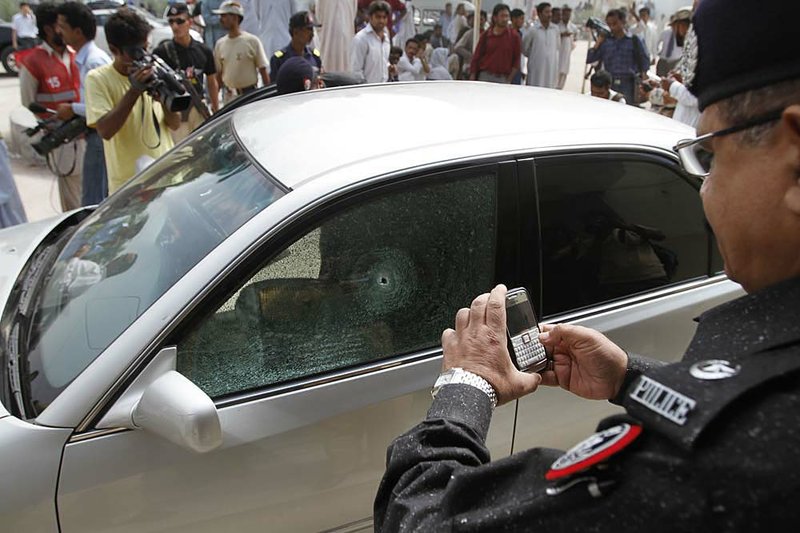KARACHI, Pakistan — Gunmen on a motorcycle opened fire on a Japanese consular vehicle in Pakistan’s largest city Thursday, wounding two local employees and underscoring the fragile security in the country.
Islamist militants have targeted foreigners in Pakistan before, but police said the attack might have been an attempted robbery. Karachi is a chaotic city of 16 million, and violence linked to criminal gangs, political and ethnic rivalries and Muslim extremists is common.
Elsewhere in the country, an American missile strike killed seven suspected militants close to the Afghan border, the latest in a surge of such attacks over the past two months.
The shooting in Karachi happened soon after the three Pakistanis in the car had stopped by a bank to get cash, police official Javed Akbar Riaz said. The two wounded men were in stable condition, he said.
Kazuwhiro Kawase, a spokesman at Japan’s Foreign Ministry in Tokyo, confirmed the shooting and said no Japanese diplomats were in the vehicle. Police in Karachi said the car’s license plates indicated it belonged to the Japanese Consulate.
Japan and Pakistan have good relations, and Tokyo has been generous in providingaid to the Muslim-majority nation.
Criminals appear to have grown more active over the past decade as Pakistan’s government has tried to curb the growth of the Taliban. The militants are believed to benefit from their links to crime syndicates.
The missile attack in North Waziristan was the third in 24 hours in the tribal region, which is home to hundreds of Pakistani and foreign Islamist militants, many belonging to or allied with al-Qaida and the Taliban. The region also hosts the Haqqani network, a powerful insurgent group that U.S. officials say is behind many of the attacks on U.S. and NATO forces just across the border in Afghanistan.
The missiles struck a house in the Datta Khel area,killing five unidentified “foreign” and two local militants, said Pakistani intelligence officials on condition of anonymity, in line with their agency’s policy.
North Waziristan is too dangerous for outsiders to visit and independently confirm the attacks, and U.S. officials do not acknowledge firing the missiles, much less discuss who they are targeting.
There have now been at least 20 suspected U.S. missile strikes in Pakistan this month. There were 21 such attacks in September, nearly double the previous monthly record. They are fired by unmanned drones that fly over the region for hours.
The Pakistani Taliban, one of the largest groups in Pakistan’s tribal belt, beheaded three people Thursday in the Mohmand region after accusing them of robbing and kidnapping people while posing as militants, local government official Meraj Khan said. The insurgents have gained support in some areas by claiming to dispense quick and fair justice, as well as deter crime.
In Pakistan’s southwest, gunmen opened fire on a van, killing four Shiite Muslims in an apparent sectarian attack. Shiites are a religious minority group in Pakistan. The victims were heading home from a department store in Quetta, the capital of Baluchistan province, said Hamid Shakil, the police chief. Like many other parts of Pakistan, Baluchistan has a history of violence between the Shiite and Sunni sects of Islam.
Information for this article was contributed by Hussain Afzal, Habib Khan, Rasool Dawar, Abdul Sattar and Malcolm Foster of The Associated Press.
Front Section, Pages 6 on 10/29/2010

